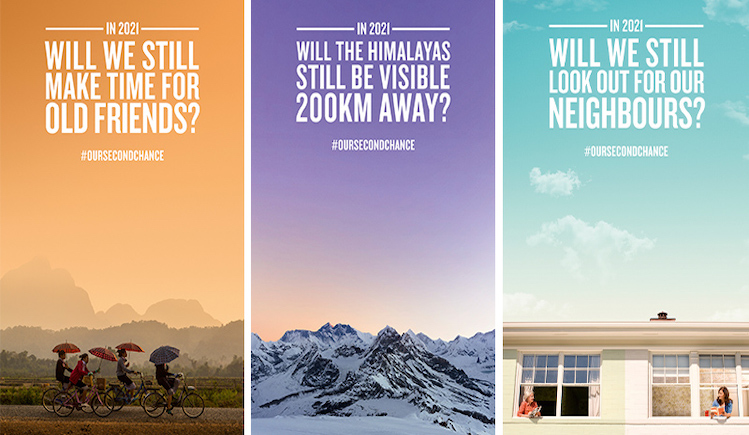We need to refocus

Bob Wootton calls for pride in the work, plus a shift to marketing the industry’s craft and its commercial impacts to customers
I’ll probably get into hot water for this, but if someone had just landed here and for some strange alien reason decided to focus on our industry, I think they could be forgiven for being confused as to its orientation and purpose.
Yes, it’s been difficult to work remotely and to produce content, especially elaborate stuff like big TV commercials, amidst various lockdowns and other restrictions.
But most have done a great job of relocating to homes and regrouping online. I’d go as far as to say that we’ve all surprised ourselves – in a good way – even if the longer-term effects are still unknown.
At such a time of course, much of the talk will be around whether or not we will return to office working and if so, how?
Particularly in the earlier stages, there was also a much greater focus on compassion and caring. This preoccupied our liberal, educated, woke industry, but wasn’t necessarily reflected at large.
Rather, there’s some very angry behaviour out there and it’s only likely to get worse as government subsidies expire, the seasons worsen and we face whatever a second wave throws at us. Especially as the guidance changes daily.
Meanwhile, movements like #metoo and #blacklivesmatter were fuelled by events – notably George Floyd’s televised killing by police officers – and gained momentum significantly.
We pride ourselves on being in touch with and making sense of the movements and nuanced moods of society to connect and promote brands, products and services, so no surprise that we embraced these (even if we continue to ignore age as we have done systematically for decades).
But I fear we’ve overshot and turned inwards.
Increased difficulty aside, the narrative we put out has drifted away from the making and flighting of effective commercial communications. And this, just at a time when advertising already has enough image problems.
We’ve diverted our keen gaze from what we actually do towards other, admittedly worthy, social causes. It’s almost as if many of our leaders have succumbed to becoming sociology lecturers.
Well, horror vacui. Really memorable ads are scarce of late. My favourites were from Setapp until I realised I’d had to look-up the product name repeatedly, despite being bang in market.
Brand purpose has been another distraction for many.
Whisper it, but it’s far from certain how many actually pay much attention to the behaviours of the companies that make the brands they purchase – apart from a small but highly-vocal band of activists with whom our industry has some cross-connections.
Nor is it clear how many marketers actually believe the purpose stuff and walk the talk. Privately, many (me included) suspect a majority just mouth it.
All this stuff might inform who we are and how we work, but less what we do, which is make great commercial communications we can be proud of because they work.
On the bright side, some of the trade bodies, notably Thinkbox and Magnetic, have done great work to promote their media in challenging times.
While WOOH is running an amazing global campaign called #OurSecondChance and created by new hotshop New Commercial Arts (pictured above), which positions out of home at the centre of the societies it operates within.
But put simply, we need a big reset and to drive back towards marketing our craft and its commercial impacts to our customers.
The cross-media supertanker steams on
Darren Wooley of Australia’s Trinity P3 has just published a comprehensive commentary on the current status of our global and local advertiser bodies’ calls for decent cross-media measurement.
He suggests we’re long on words and intentions but haven’t got far beyond anything more than protocols, frameworks, roadmaps etc – the language of technocrats.
When it comes to converting these into real surveys on which media can be planned and traded around the world, I’m a skeptic, as it seems is Woolley and the venerable Brian Jacobs, who he also quotes. Especially when much of the input and funding necessarily comes from those with skin in the game, the big new media players.
Having spent two decades in the space, I can vouch that it will be difficult if not impossible to get the necessary broad media owner co-operation and funding in anything credible – which inevitably shows some in a better light than others.
Be careful what you wish for? No worries – the leading protagonists of said protocols can take quiet comfort in the knowledge that they will be safely out of it long before the reckoning, which will eventually come when little of any use is delivered.
Likewise, the generation of advertiser leaders calling for it from behind their often massive budgets – even if they are quite right to do so.
The land of independents
Final word is “bravo” to the 17 independent media agencies that are collaborating to present themselves as the destination of choice for progressive brands.
These companies compete for the smaller (15% but growing) share of UK media spend that is not aligned with the network holding group shops.
Nick Manning wisely observes that media is transitioning from procurement’s whipping boy to biddable, data-driven and targeted, and that media consulting has evolved from benchmarking and pool auditing to “Independent Media Analysis”, accelerated by a new wave of ventures.
Covid or not, there’s everything for them to play for.
Final, final word – honest
Huge congratulations to all the winners, but especially to #Goodstuff on winning the Media Week Grand Prix – again. I’ve been an unashamed fan for a long time but there’s nothing like peer recognition.




